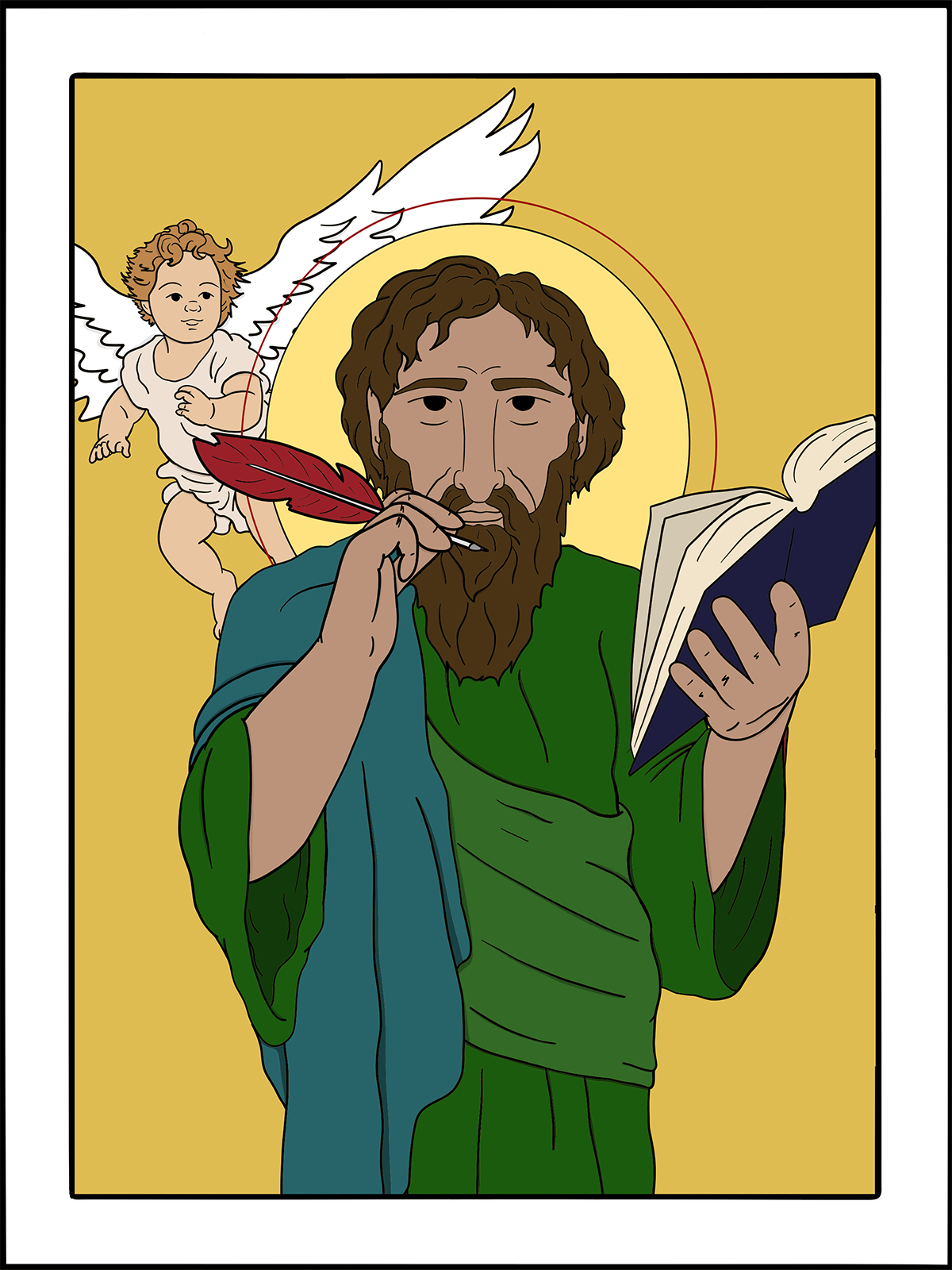
September 21
Saint Matthew, Apostle and evangelist
art by Rev. Kirsten Kohr of Geneva, Ohio We thank you, heavenly Father, for the witness of your apostle and evangelist Matthew to the Gospel of your Son our Savior; and we pray that, after his example, we may with ready wills and hearts obey the calling of our Lord to follow him; through Jesus Christ our Lord, who lives and reigns with you and the Holy Spirit, one God, now and for ever. Amen.
Matthew, one of Jesus’ disciples, is probably to be identified with Levi, a tax collector (“publican”) mentioned by Mark and Luke. In the Gospel according to Matthew, it is said that Matthew was seated in the custom-house when Jesus invited him, “Follow me.” When Jesus called him, he at once left everything, followed Jesus, and later gave a dinner for him. Mark and Luke also note that Levi was a tax collector. In all three accounts, Jesus is severely criticized for eating at the same table with tax collectors and other disreputable persons.
Tax collectors were viewed as collaborators with the Roman State, extortioners who took money from their own people to further the cause of Rome and to line their own pockets. They were spurned as traitors and outcasts. The Jews so abhorred them that pious Pharisees refused to marry into a family that had a publican as a member. Clearly, Matthew was hardly the type of man that a devout Jew would have had among his closest associates. Yet Jesus noted that it was the publican rather than the proud Pharisee who prayed the acceptable prayer, “Lord, be merciful to me, a sinner.” There are several favorable references to publicans in the sayings of Jesus in the Gospel according to Matthew.
According to the early Christian writers Irenaeus and Clement of Alexandria, Matthew converted many people to Christianity in Judea, and then traveled on to the East; however, there is no certain evidence for this. He has traditionally been venerated as a martyr, but the time and circumstances of his death are unknown.
Excerpted directly from “Lesser Feasts and Fasts 2022,” p. 422-423.

